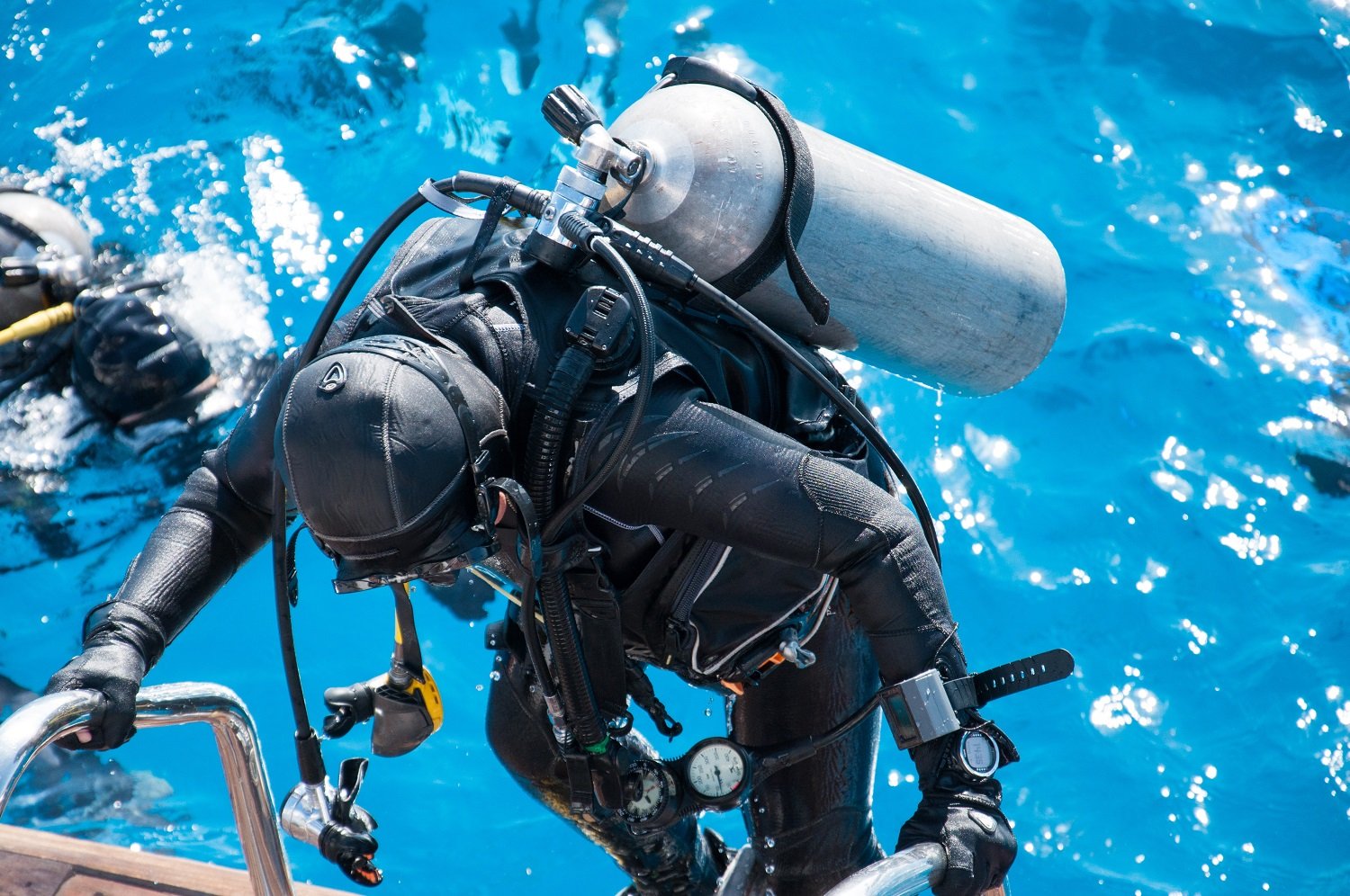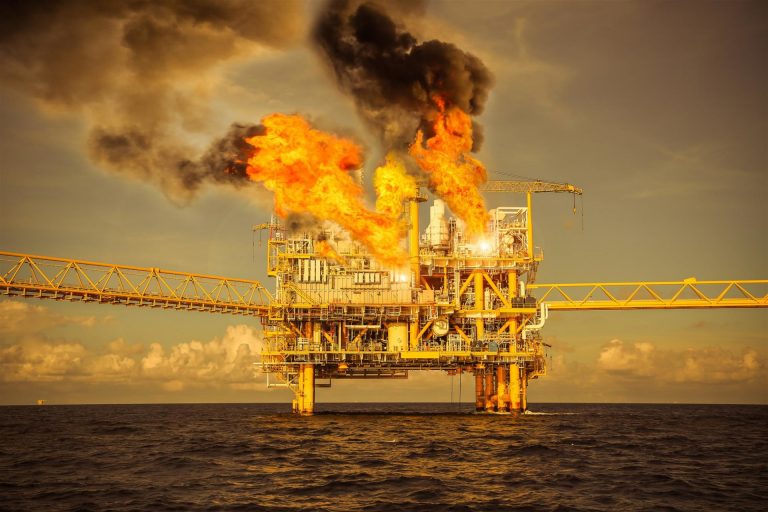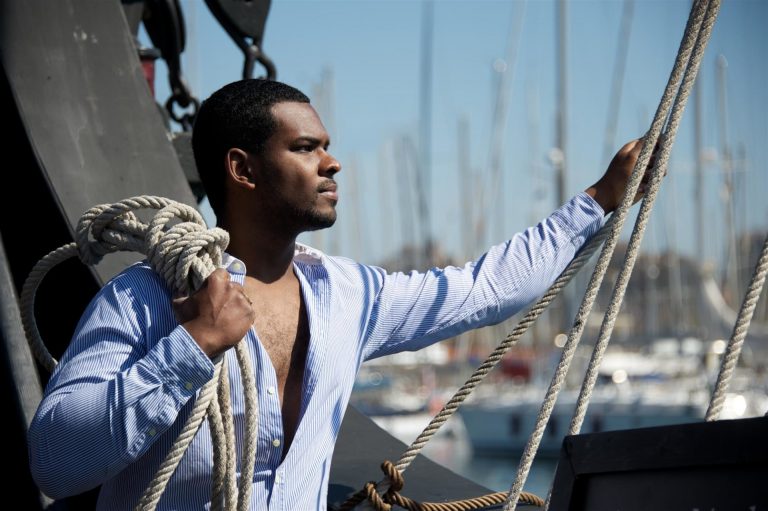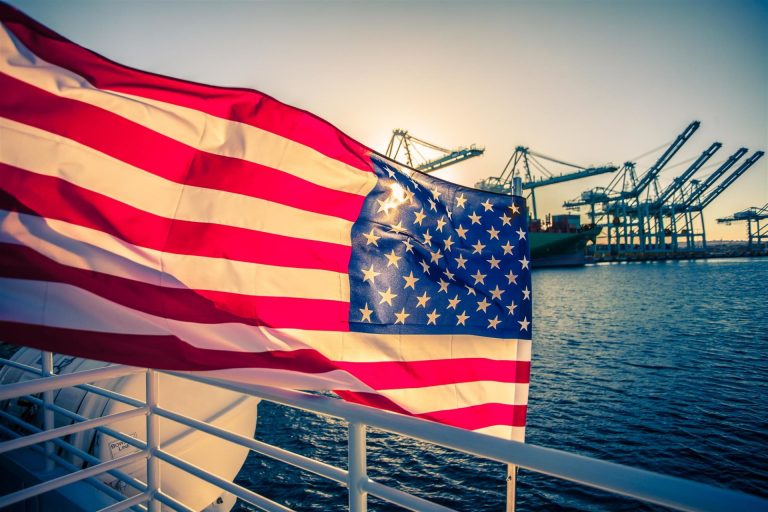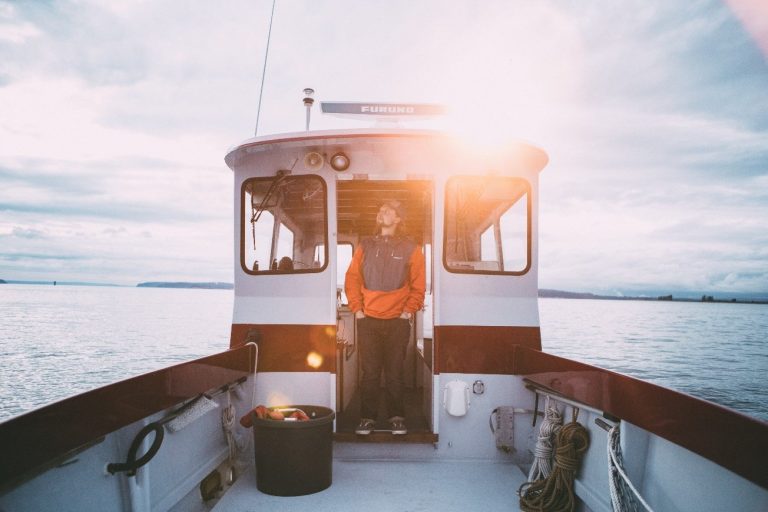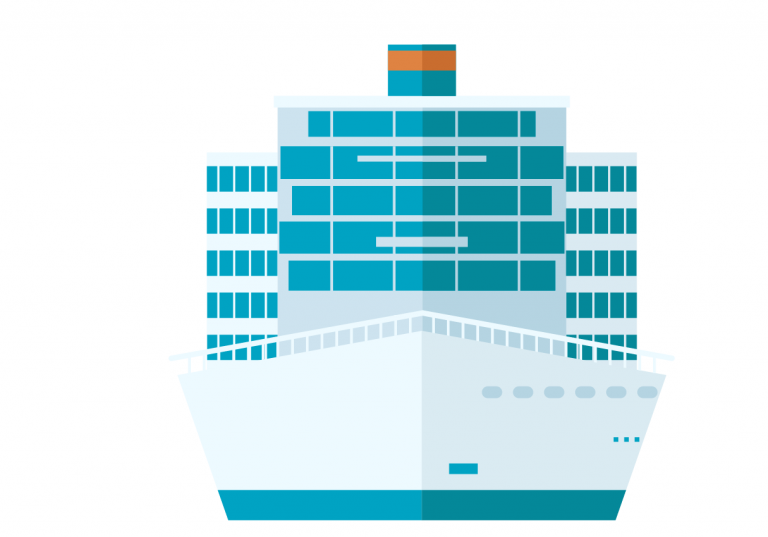Commercial divers work in a wide range of environments, including dive boats, oil rigs, offshore platforms, and barges. They perform different types of tasks and job functions underwater that can include maintenance, repairs, construction, and even research.
Just like other maritime jobs, commercial divers do have increased risks of maritime injuries and accidents compared to other types of careers. According to the Bureau of Labor Statistics, commercial divers experienced 460 nonfatal injuries and 39 fatal injuries from 2011-2017.1
Where Do Commercial Divers Work?
Commercial divers work various industries performing different types of jobs. Most work in coastal states like Texas, Florida, New Orleans, California, New York, etc. Others work in states with access to the Great Lakes or Mississippi River. Essentially, commercial divers work anywhere that there is a major body of water that is deep enough to require diving to perform various functions and tasks.
What Do Commercial Divers Do?
Commercial divers can work near-shore and offshore performing a variety of jobs and functions including:
- Performing Inspections: Commercial divers inspect ships’ hulls, oil rigs, and other such sea vessels.
- Performing Maintenance and Repairs: Commercial divers are tasked with performing maintenance and repairs on various types of vessels, sea walls, underwater exploration facilities, oil pipelines, sewer lines, and so on.
- Construction: Some commercial divers perform various construction tasks like capping oil wells, building new underwater facilities, building new oil rigs, building bridges, installing new pipelines, etc.
- Photography: A select group of commercial divers are photographers and capture pictures of underwater wildlife.
- Oceanography: Commercial divers can also be oceanographers who study marine life, the sea floor, and the environmental conditions of the water.
- “Treasure” Hunters: There are also commercial divers that look for old shipwrecks and treasures hidden away deep under the sea.
As you can image, with a wide range of job opportunities for commercial divers, the risks of maritime injuries can and does vary from one industry to the next. Some of the most common maritime accidents commercial divers face could include but may not be limited to:
1. Fires and Explosions
From dive ship fires and explosions to fires and explosions underwater, commercial divers need to be aware of how to reduce risks for this type of accident. Fires and explosions onboard a dive ship could occur due to a lack of proper maintenance or not storing/handling explosive materials safely.
Fires and explosions underwater could occur from improperly handling flammable materials to not ensuring welding equipment was properly calibrated. In addition, natural causes like oil wells and natural gas vents could also trigger fires and explosions when exposed to flames.
2. Lack of Proper Dive Preparation and Planning
Commercial divers can get injured and accidents can occur when there is not a proper dive plan in place. Any dive plan should be reviewed prior to diving and verified that the plan has realistic expectations of what the commercial divers are supposed to do.
3. Lack of Experience and Training
Divers that have a lack of experience and training working at different depths can contribute to accidents and maritime injuries. They may not be prepared for various types of underwater conditions and depths and could easily panic because they don’t know what to do. When panic sets in, accidents and injuries could follow.
4. Improperly Maintained Diving Equipment
Diving equipment needs to be inspected and maintained to ensure it is safe to use. For example, if a depth gauge or tank gauge is malfunctioning, a diver may assume it is correct and could place themselves into a dangerous situation leading to an accident and personal injuries.
5. Improperly Maintained Dive Ship
If the vessel being dived from is not maintained, it is possible accidents could occur onboard while the diver is underwater. For instance, the dive lines that divers use to remain tethered to the ship could snap in two if they are not maintained and inspected.
6. Surfacing Too Quickly After a Deep Dive
The “bends,” also called decompression sickness, can occur when surfacing too quickly after a deep dive. Nitrogen forms in the body and is released in the tissues and bloodstream. The presence of nitrogen causes divers to feel sick and experience headaches, dizziness, weakness, problems breathing, and muscle fatigue.
Another type of condition that divers can experience when surfacing too quickly is an arterial gas embolism. As the diver is surfacing, water pressure decreases. This allows the lungs to expand more.
However, if the diver does not fully exhale with each breath, air is left in the expanding lungs. When they inhale with their next breath, it causes overexpansion of the lungs. This can cause air bubbles to be released into the pulmonary capillaries and the alveoli to tear.
The air bubbles can travel through the circulatory system and the heart and even reach the brain. A person could experience symptoms that include:
- Convulsions
- Paralysis
- Weakness
- Confusion
- Loss of Consciousness
- Bleeding Nose/Mouth
This condition is very serious and could lead to death if not treated. Arterial gas embolisms mimic symptoms of strokes and can occur quickly. It can also mimic symptoms similar to the “bends.”
7. Improper Gas Mixture/Gas Poisoning
If the oxygen supplied by the airline or tank is not sufficient, carbon dioxide can start to build up inside the diver’s helmet. Eventually, there is more carbon dioxide than oxygen, which can cause the diver to pass out.
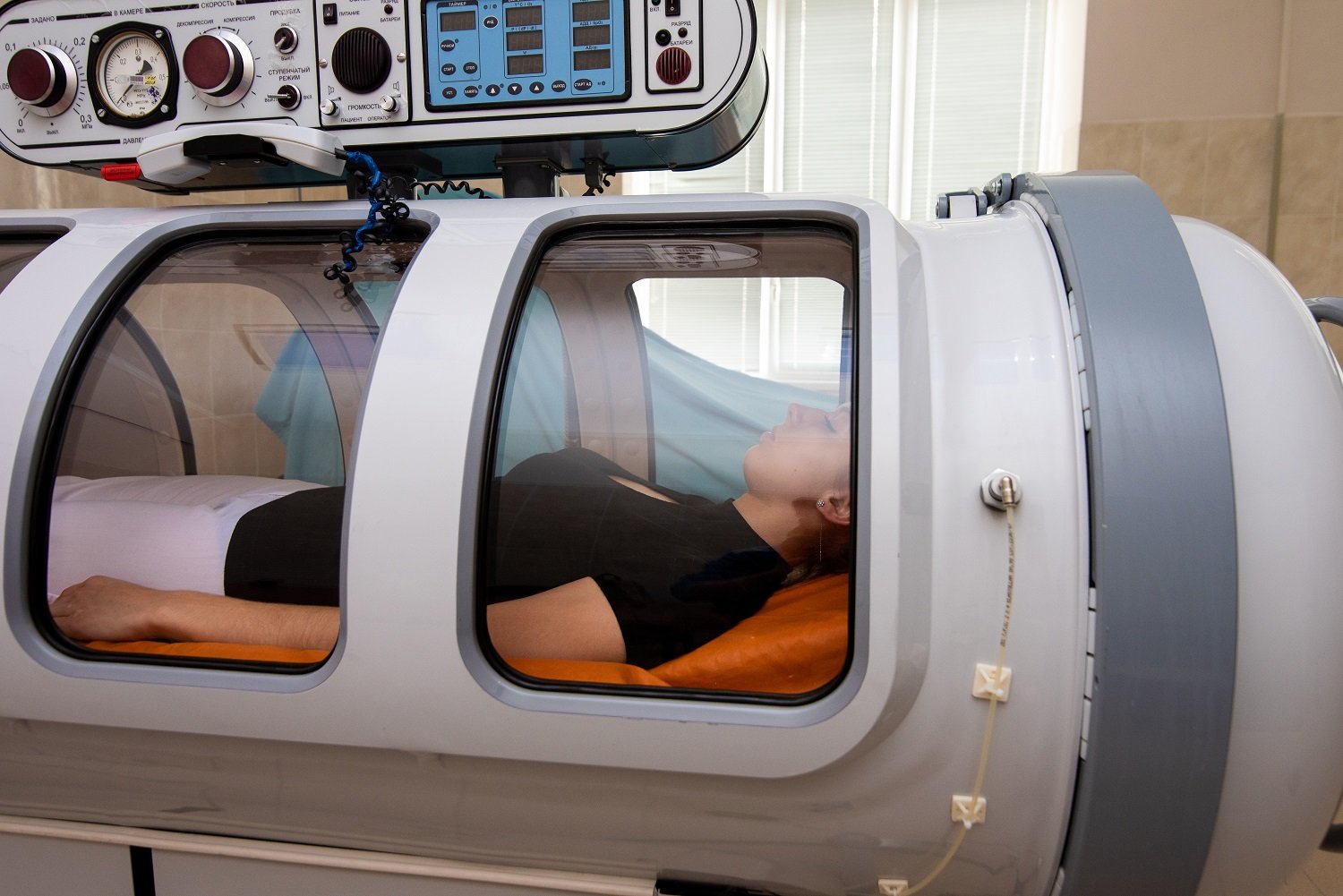
Commercial divers also face the risk of nitrogen narcosis. This condition occurs during deep dives when the diver is using an oxygen tank to supply air. The diver can start to feel like they are drunk and confused.
The systems can also affect the judgment of the diver. As a result, some divers will have reduced inhibitions, meaning they will not be afraid to dive deeper and deeper. While most cases of nitrogen narcosis are not severe, some divers can slip into a coma or could die.
8. Onboard Accidents
Commercial divers can also have to contend with the potential for onboard accidents. Slips, trips, and falls are quite common due to slippery decks. This type of accident can result in broken bones, cuts, sprains, and head injuries.
9. Hypothermia
Spending too much time in colder waters can lead to hypothermia. Even when wearing dive suits that help protect against the cold, divers can start to notice they feel cold. If they do not get out of the water, hypothermia symptoms can start to appear.
10. Drowning
Drowning can occur from equipment failure, damaged equipment, getting tangled up in diving lines, and other reasons. For example, a diver who is experiencing nitrogen narcosis could dive too deep, get confused, and run out of oxygen.
Keep in mind, these are just the top 10 most common types of commercial diving maritime injuries commercial divers can face. There are also other risks like unexpected changes in weather patterns that could lead to accidents and injuries.
Who Is Responsible for Commercial Diving Accidents and Injuries?
In some cases, the accident and injury could have been caused by the commercial diver. In other cases, a coworker, employer, or working conditions could have been responsible for the accident and resulting injuries.
When maritime accidents occur due to the negligence of another person or party, the injured diver could have certain legal rights to seek compensation to cover the costs of medical care and treatment, lost wages, and so on.
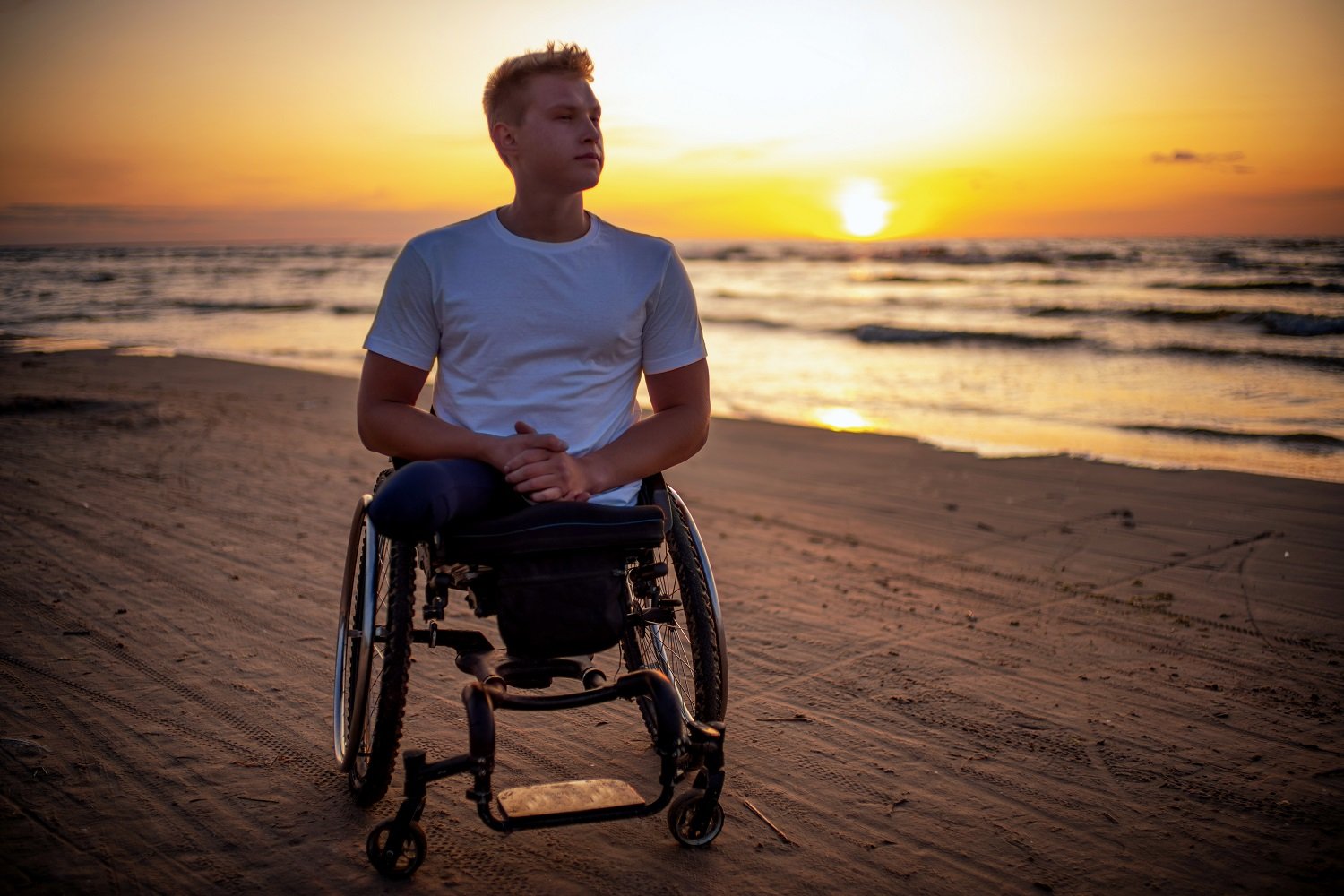
Furthermore, the commercial diver could be entitled to this compensation, through various maritime laws and acts instead of state workers’ compensation programs. Due to the complexities of maritime injury accident claims, it is highly recommended to speak with a maritime injury attorney as soon as possible.
Consulting with a maritime attorney helps you find out your legal rights, whether you need to file a claim through a state workers’ compensation program or through a specific maritime law or act.
To find out your legal rights and what types of compensation you could be entitled to receive for your maritime injuries, please feel free to contact Maintenance and Cure, part of Schechter, Shaffer & Harris, L.L.P. at 800-836-5830 for a FREE consultation with one of our maritime attorneys today!
Source:

